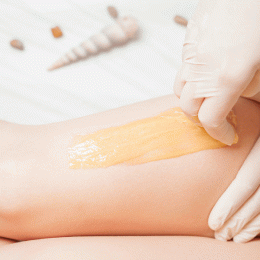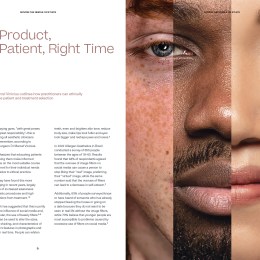In an effort to improve patient safety, New South Wales Health have announced changes to the Poisons and Therapeutic Goods Regulation 2008 that will come into effect from 1 September 2021.
The new laws mark the most significant changes to the regulations since changes to the Poisons and Therapeutic Goods Act 1966 created a new classification for medicines used in cosmetic procedures, such as anti-wrinkle injections and dermal fillers in 2018. At the time, NSW Health invited members of the public to comment on proposed changes that have now led to the amended Poisons and Therapeutic Goods Regulation 2008.
NSW Health wrote that they recognise the majority of providers operate in a safe and appropriate manner and these additional regulations are “intended to target the minority of providers who adopt unsafe practices which compromise patient safety and can have serious consequences for patients.”
President of the Cosmetic Physicians College Australia (CPCA), Dr Michael Molton, tells us that the college commends NSW health for the amendments.
“The legislative changes in NSW now defines an ‘authorised practitioner’ as one who is permitted to procure, transport, store and administer prescription-only medications for the purpose of cosmetic procedures. The importance of this definition essentially protects those members of the Australian public who seek cosmetic health services and furthermore, this legislation has effectively stemmed the eventuality of the same circumstances that continue to be allowed to occur without regulatory control in the UK happening here in Australia, placing emphasis on increased patient safety for patients in NSW today and the future,” said Dr Michael Molton.
The official statement from New South Wales Health reads:
New laws that apply to administering cosmetic medicines
Amendments to the Poisons and Therapeutic Goods Regulation 2008 will come into effect from 1 September 2021 to improve the safety of the use of cosmetic medicines in NSW.
The regulation will set additional requirements relating to the administration, storage, and record keeping of medicines commonly used for cosmetic purposes, such as anti-wrinkle injections and dermal fillers (cosmetic medicines).
New requirements under the regulation
The new regulation will:
- prohibit a person other than an authorised practitioner, or a nurse acting under the direction of a medical practitioner or nurse practitioner, from administering cosmetic medicines (An authorised practitioner includes a medical practitioner, nurse practitioner or dentist)
- require a medical practitioner or nurse practitioner to personally review the patient (including via audio-visual link) before authorising administration of the cosmetic medicines
- if the cosmetic medicine is administered by a nurse, require records of the direction to be made and kept by the medical practitioner or other authorised practitioner
- if the cosmetic medicine is administered by a nurse, require records of the administration to be made and kept by the nurse administering on the direction of a medical practitioner or nurse practitioner
- set storage requirements on the occupier of the premises where cosmetic medicines are stored
- require businesses that provide services using cosmetic medicines to keep records made by the medical practitioner or other authorised practitioner, and by the nurse administering on the direction of a medical practitioner or nurse practitioner
- require businesses that provide services using cosmetic medicines to have appropriate risk management policies and procedures in place to protect the health and safety of patients; appropriate equipment for use in a patient medical emergency; and to ensure that nurses are adequately trained for patient medical emergencies
- require businesses that provide services using cosmetic medicines to ensure that the regulations are complied with
Penalties for breaching the regulation
A breach of the regulation is an offence with a maximum penalty of between $5,500 to $22,000 and/or imprisonment for 6 months for an individual, and between $27,500 and $110,000 for a body corporate.
These restrictions do not apply where the administration is undertaken by an authorised practitioner themselves or by an employee in a hospital acting on an authorised practitioner’s direction.
What are cosmetic medicines?
Cosmetic medicines include:
- botulinum toxins
- calcium hydroxylapatite
- collagen
- deoxycholic acid
- hyaluronic acid and its polymers
- polyacrylamide
- polycaprolactone
- polylactic acid
DID YOU KNOW
There are 5 ways you can catch up with SPA+CLINIC?
- Our quarterly print magazine, delivered to your door. Subscribe here.
- Our website, which is updated daily with its own completely unique content and breaking news.
- Our weekly newsletter – free to your inbox! Subscribe here.
- Our digital magazine – click here to view previous issues.
- Our social media – see daily updates on our Instagram, Facebook & Linkedin





